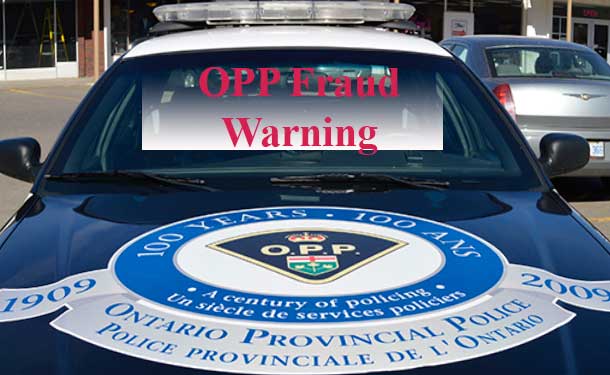
THUNDER BAY – Crimebeat – “The impact of romance fraud, personally and financially, is staggering – and is unfortunately trending upwards. Only give out your personal information where it is absolutely necessary and when you trust the person with whom you are dealing,” states Deputy Commissioner Scott TOD, OPP Investigations and Organized Crime.
Fraud committed through romance and dating scams continue to rise according to members of the Ontario Provincial Police (OPP) Anti-Rackets Branch.
“Like any scam, use your computer or wireless device to your advantage and educate yourself. Those who use social media and dating websites need to ensure their personal and financial security before committing money to someone in the online world they think they can trust,” Detective Inspector Paul BEESLEY, OPP Anti-Rackets Branch.
Criminals seek their potential victims online, generally single or recently unattached people. Usually this occurs through singles and dating-related ‘meet’ websites, social media platforms, or e-mail blasts. In some cases, prolonged interaction with individuals has cost some victims tens of thousands of dollars before the ‘relationship’ ends, usually without ever meeting in person.
According to the Canadian Anti-Fraud Centre (CAFC), in 2013 there were 1,728 complaints from Canada of romance fraud – a year-over-year increase of nearly 300. Of those complaints, 1,149 victims – often female – were identified and their combined financial losses exceeded $15.6 million – more than any other identified financial loss due to fraud.
Although police say all types of fraud are under-reported, the romance scam is also an emotional roller coaster. Therefore, a victim is dealing with severe financial hardship and the personal embarrassment and torment after realizing they have been taken advantage of.
Tips to Avoid Being a Victim of a Romance / Dating Scam include:
Checking website addresses carefully. Scammers often set up fake websites with very similar addresses to legitimate dating websites.
Never send money, or give personal credit card or online account details to anyone you do not know and trust. A request to send money to a foreign country to someone you have never personally met should be a red flag.
Don’t give out any personal information in an email or when you are chatting online. Educate yourself. Check the person’s name, the company name, and the addresses used.
Ask yourself – ‘Would someone I have never met really declare their love for me after only a few letters or emails?’ If the answer is no, report it to police.
If you suspect you or someone you know has been a victim of romance fraud, or if you have already sent funds, don’t be embarrassed – you’re not alone. Contact your local police service or Crime Stoppers at 1-800-222-8477 (TIPS).








